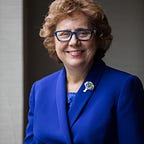I Want to Start a Movement: Everyone Learns All the Time
Years ago, there was no medication administration training for direct care staff, and all human services providers were on their own to train and supervise the process. At that point in my professional career, I was responsible for 82 sites where the people we supported, lived and needed help to take medication. I understood the challenge and also knew just how important the medications were to each person’s wellbeing. At one point in that role, I made a big assumption that DSPs wanted to be on time and accurate in their work. I also understood that errors would be made, but what was I going to do when we discovered one?
I made the decision early on that we would investigate the errors in a very intimate way. We would ask the DSP to recreate the environment and time when the error occurred; and through that process, the DSPs became our teachers. It helped us learn where the gaps and threats were, and we set out to use the learning to help others avoid those same types of mistakes. Throughout the process we were able to get the medication errors down to zero!
What did we learn from the DSPs? That they had decided to administer medications in the quietest place possible in the home, the dining rooms. It made sense, in most family homes we only used the dining rooms for special occasions. Not only were the rooms quiet, they had dimmer lighting. The errors were connected to the lighting! We could fix that! In another instance, there was simply not enough space to spread out; pills were being dropped on the floor and had to be discarded. We worked with those staff to consider alternatives, and resolved the challenge. Each time we asked questions, we learned and we worked with the staff to identify choices.
Staff were given the freedom to pause and to think, with the support of someone with great questions to help them make decisions. In the end they were in control, and their pursuit of excellence succeeded. I can’t say that there weren’t missed doses occasionally, but when it happened there was a good reason. They were everyday life challenges, like a gentleman who fell asleep early. Staff did not wake him up to take a routine medication, instead they gave it according to the directions when he woke up. Today that would be viewed as error; but to me even today, I would call that life. Life does not need an investigation.
We need to change the world in many ways, particularly in asking more questions and learning from the answers. We need to expect that excellence is to goal for everyone and that it can be achieved. Let’s do our part at KenCrest to be the change we want to see around us.
